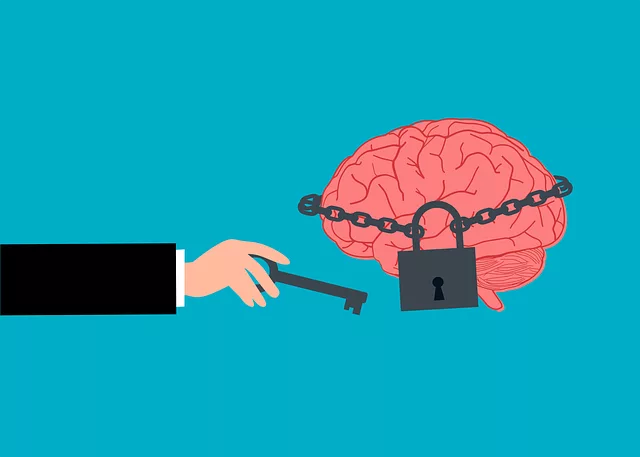Mental Health Advocacy in Lone Tree: Kaiser’s Phone Line Empowers Community Well-being
Mental health advocacy in Lone Tree, driven by initiatives like the Kaiser Permanente behavioral hea…….
In the evolving landscape of healthcare, addressing mental well-being has emerged as a paramount concern. Amidst this shift, the concept of accessible and comprehensive behavioral health services has gained significant traction. This article delves into the intricacies of the “Kaiser Permanente Behavioral Health Phone Number Lone Tree,” exploring its role in providing vital support to individuals seeking mental health assistance. By examining its definition, impact, challenges, and future prospects, we aim to offer a holistic understanding of this initiative and its potential to shape healthcare delivery.
The “Kaiser Permanente Behavioral Health Phone Number Lone Tree” refers to a specialized service within the Kaiser Permanente healthcare network, designed to offer immediate and accessible behavioral health support to individuals in need. This initiative centers around a dedicated phone line, staffed by trained professionals, that provides a confidential space for individuals to discuss their mental health concerns. The key components include:
Kaiser Permanente, a renowned healthcare organization, has been at the forefront of innovative patient care models. Recognizing the growing need for accessible behavioral health services, they introduced this phone number as part of their commitment to holistic healthcare. This initiative reflects a broader trend in healthcare systems worldwide, where there is a push to de-stigmatize mental health issues and make treatment more readily available.
The Lone Tree location specifically caters to a defined geographic area, ensuring that residents have easy access to immediate support. This localized approach aligns with the global movement towards community-based healthcare solutions, empowering individuals to take charge of their well-being.
The “Kaiser Permanente Behavioral Health Phone Number” model has garnered international attention for its innovative approach to mental health care accessibility. Many countries are adopting similar strategies to address the growing demand for behavioral health services. For instance:
The adoption and adaptation of such models vary across regions, influenced by cultural, socioeconomic, and healthcare system differences:
| Region | Key Trends | Notable Adaptations |
|---|---|---|
| North America | High demand for accessible mental health care, particularly in urban areas. | Focus on 24/7 availability and integration with primary care systems. |
| Europe | Increasing recognition of mental health as a public health priority. | Emphasis on cultural sensitivity and language accessibility in phone-based services. |
| Asia Pacific | Growing awareness of mental health issues, but limited resources for treatment. | Some countries introduce low-cost or free phone counseling services targeted at specific demographics. |
The behavioral health phone service market is experiencing significant growth, driven by rising mental health awareness and the need for cost-effective care solutions. According to a report by ResearchAndMarkets.com, this global market is projected to reach $7.4 billion by 2026, growing at a CAGR of 18.5%.
Healthcare investors are increasingly directing funds towards innovative mental health care models. The “Kaiser Permanente” approach, with its potential to improve patient outcomes and reduce long-term healthcare costs, appeals to investors seeking impactful and sustainable investments. Private equity firms and venture capitalists are backing startups that offer digital behavioral health solutions, including phone-based services.
Integrating behavioral health phone numbers into existing healthcare systems can lead to several economic benefits:
Technology plays a pivotal role in enhancing the capabilities and accessibility of behavioral health phone services:
Technological advancements have already had a profound impact:
The “Kaiser Permanente Behavioral Health Phone Number” operates within a stringent regulatory environment designed to protect patient privacy and ensure quality of care:
Policy frameworks play a critical role in shaping the development and implementation of these services:
Despite its numerous benefits, the “Kaiser Permanente Behavioral Health Phone Number” model faces several challenges:
| Challenge | Strategies for Overcoming |
|---|---|
| Stigma and Privacy Concerns: Addressing perceived risks associated with seeking help over the phone. | Promote anonymity and emphasize confidentiality to build trust. Engage in public education campaigns to reduce stigma. |
| Technological Barriers: Ensuring accessibility for individuals without reliable internet or phone access. | Partner with community organizations to provide devices and data plans to those in need. Offer offline counseling options. |
| Professional Shortages: The demand for trained mental health professionals often outstrips supply. | Expand training programs and offer incentives to attract and retain specialists. Encourage collaboration between professionals and AI tools. |
| Crisis Management: Balancing immediate support with the need for long-term treatment planning. | Implement protocols for crisis escalation and integrate with emergency services for severe cases. |
Criticisms of phone-based services often revolve around concerns regarding the depth of care provided and potential adverse effects:
Several case studies highlight the successful implementation of “Kaiser Permanente”-style behavioral health phone services:
Case Study 1: Urban Community Initiative
In a densely populated urban area, a local healthcare provider introduced a 24/7 phone counseling service tailored to the unique needs of low-income residents. The initiative addressed cultural and linguistic barriers by offering counselors from diverse backgrounds. Within six months, over 50% of callers reported improved mental health, leading to reduced emergency room visits and lower healthcare costs.
Case Study 2: Rural Access Improvement
A remote agricultural region faced challenges in accessing mental health services. A phone-based crisis intervention program was implemented, linking individuals with trained volunteers who provided immediate support. The service expanded over time, integrating telemedicine for ongoing therapy sessions, significantly improving access to care for previously underserved communities.
Case Study 3: Teen Mental Health Program
A school district collaborated with a mental health organization to offer a confidential phone line for teenagers. The service focused on peer-to-peer support and education. Within a year, the number of students seeking help increased by 30%, indicating raised awareness and reduced stigma among young people.
The future of “Kaiser Permanente Behavioral Health Phone Number” initiatives holds immense potential:
To capitalize on emerging trends, service providers should:
The “Kaiser Permanente Behavioral Health Phone Number Lone Tree” represents a significant step forward in addressing the critical need for accessible behavioral health services. By combining technological advancements, trained professional support, and a user-centric approach, this initiative has the potential to revolutionize mental healthcare delivery. As global awareness of mental health issues continues to grow, models like this will be increasingly adopted and adapted to meet the diverse needs of communities worldwide.
Q: Is seeking help over the phone as effective as in-person therapy?
A: Phone counseling can be highly effective for many conditions, offering immediate support and access to care. However, complex or severe mental health issues may require additional in-person sessions for comprehensive treatment.
Q: How does this service ensure patient confidentiality?
A: Strict data protection policies and encryption technologies safeguard user information. All counselors are bound by ethical guidelines and professional codes of conduct to maintain confidentiality.
Q: Can anyone access these services, regardless of location?
A: While the services aim for wide accessibility, availability may vary based on geographical reach and funding. Remote areas might face challenges in accessing phone counseling, but efforts are being made to bridge this gap.
Q: How do I know if I’m using the right service for my needs?
A: Each service has its focus and target audience. Evaluating your specific needs and comparing them with the service offerings will help determine the best fit. Most phone counseling lines offer initial assessments to guide you.
Q: What happens if I’m in a crisis during off-hours?
A: Crisis hotlines are available 24/7, providing immediate support. These lines are staffed by trained professionals who can offer guidance and connect you with appropriate resources, including emergency services if needed.

Mental health advocacy in Lone Tree, driven by initiatives like the Kaiser Permanente behavioral hea…….

The Kaiser Permanente behavioral health phone number in Lone Tree is a 24/7 crisis hotline offering…….

Trauma support services provided by the Kaiser Permanente behavioral health phone number in Lone Tre…….

When creating a mental wellness podcast series targeting Lone Tree residents reaching out to the Kai…….

Group facilitation, as employed by organizations like Kaiser Permanente, significantly enhances ment…….

The Kaiser Permanente behavioral health phone number in Lone Tree is a 24/7 crisis hotline offering…….